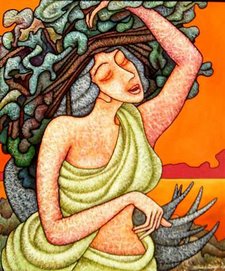DAILY NEWS, EGYPT
By Alfred Stepan
First Published: March 21, 2008
The Chief Prosecutor of Turkey’s High Court of Appeals recently recommended to the country’s Constitutional Court that the ruling Justice and Development Party (AKP) be permanently banned. Only last July, the AKP was overwhelmingly re-elected in free and fair elections to lead the government. The Chief Prosecutor also formally recommended that Prime Minister Recep Erdogan, President Abdullah Gul, and 69 other leading politicians be banned from politics for five years.
Clearly, banning the AKP would trigger a political crisis that would end Turkey’s efforts to join the European Union in the foreseeable future and threaten its recent strong economic growth. So the Chief Prosecutor’s threat should not be taken lightly — all the more so given that the Constitutional Court has banned 18 political parties (including the AKP’s predecessor party) since the current constitution was introduced in 1982. Indeed, the recent call to ban the AKP is directly related to its efforts to change Turkey’s constitution.
The underlying charge in the Chief Prosecutor’s indictment is that the AKP has been eroding secularism. But the origins of the current Constitution, and its definition of secularism, are highly suspect.
Turkey’s existing Constitution was adopted in 1982 as a direct product of the Turkish military coup in 1980. The five senior generals who led the coup appointed, directly or indirectly, all 160 members of the Consultative Assembly that drafted the new constitution, and they retained a veto over the final document. In the national ratification referendum that followed, citizens were allowed to vote against the military-sponsored draft, but not to argue against it publicly.
As a result, the 1982 Constitution has weaker democratic origins than any in the EU. Its democratic content was also much weaker, assigning, for example, enormous power (and a military majority) to the National Security Council. While the AKP has moderated this authoritarian feature, it is difficult to democratize such a constitution fully, and official EU reports on Turkey’s prospects for accession repeatedly call for a new constitution, not merely an amended one.
With public opinion polls indicating that the AKP’s draft constitution, prepared by an academic committee, would be accepted through normal democratic procedures, the Chief Prosecutor acted to uphold the type of secularism enshrined in the 1982 Constitution, which many commentators liken to French secularism. Yet the comparison with what the French call laicité is misleading.
Certainly, both French laicité and Turkish secularism (established by modern Turkey’s founder, Kemal Atatürk) began with a similar hostility toward religion. But now they are quite different. In Turkey, the only religious education that is tolerated is under the strict control of the state, whereas in France a wide variety of privately supported religious education is allowed, and since 1959 the state has paid for much of the Catholic Church’s primary school costs. In Turkey, Friday prayers are written by civil servants in the 70,000-member State Directorate of Religious Affairs, and all Turkish imams also must be civil servants. No similar controls exist in France.
Similarly, until the AKP came to power and began to loosen restrictions, it was virtually impossible in Turkey to create a new church or synagogue, or to create a Jewish or Christian foundation. This may be why the Armenian Patriarch urged ethnic Armenians in Turkey to vote for the AKP in last July’s elections. Here, too, no such restrictions exist in France.
The differences between French and Turkish secularism can be put in even sharper comparative perspective. In the widely cited “Fox” index measuring state control of majority and minority religions, in which zero represents the least state control, and figures in the thirties represent the greatest degree of control, all but two current EU member states get scores that are in the zero to six range. France is at the high end of the EU norm, with a score of six. Turkey, however, scores 24, worse even than Tunisia’s authoritarian secular regime.
Is this the type of secularism that needs to be perpetuated by the Chief Prosecutor’s not so-soft constitutional coup?
What really worries some democratic secularists in Turkey and elsewhere is that the AKP’s efforts at constitutional reform might be simply a first step toward introducing Sharia law. If the constitutional court will not stop a potential AKP-led imposition of Sharia, who will?
There are two responses to this question. First, the AKP insists that it opposes creating a Sharia state, and experts say that there is no “smoking gun” in the Chief Prosecutor’s indictment showing that the AKP has moved toward such a goal. Second, support for Sharia, never high in Turkey, has actually declined since the AKP came to power, from 19 percent in 1996 to 8 percent in 2007.
Given that the AKP’s true power base is its support in democratic elections, any attempt to impose Sharia would risk alienating many of its own voters.
Given this constraint, there is no reason for anyone, except for “secular fundamentalists,” to support banning the AKP, Erdogan, or Gul, and every reason for Turkey to continue on its democratic path. Only that course will enable Turkey to construct a better constitution than it has now.
Alfred Stepan is Professor of Government and Director of the Center for Democracy, Toleration and Religion at Columbia University. This commentary is published by DAILY NEWS EGYPT in collaboration with Project Syndicate (http://www.project-syndicate.org/).
Subscribe to:
Post Comments (Atom)



No comments:
Post a Comment